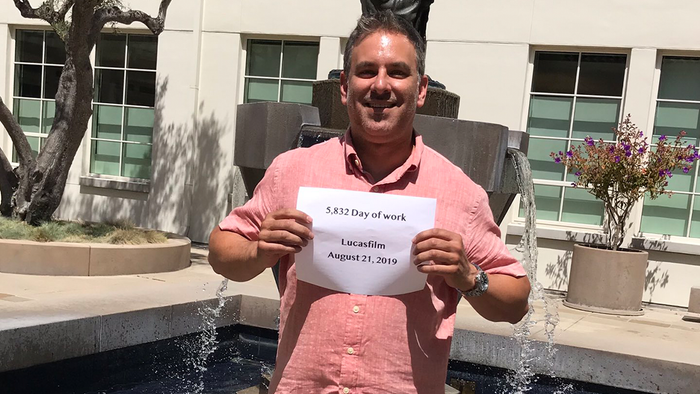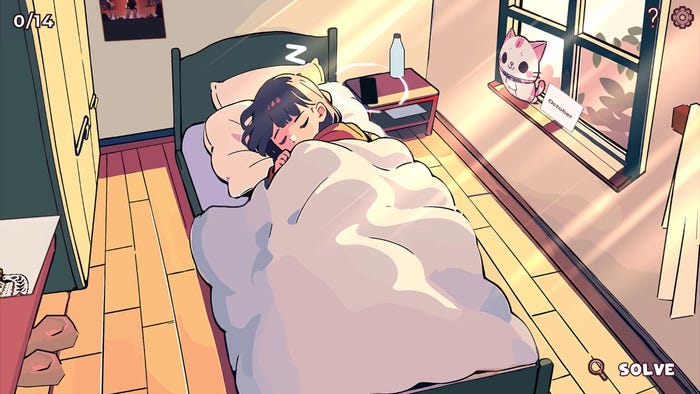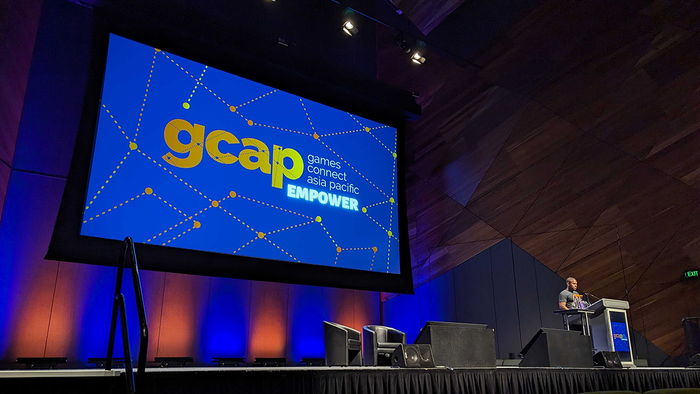
Featured Blog | This community-written post highlights the best of what the game industry has to offer. Read more like it on the Game Developer Blogs.
The Guide to Starting Small
The hardest thing in game development is starting right. Read this article to understand what it means to start small.

[As posted on The Way of the Indie Game Developer]
"I want to be a game developer! What should I do?" This million dollar question, is probably the most asked question around game developers. If you call yourself a dev and no one asked you this yet, you are probably doing something wrong. Popular questions tend to have popular answers so today we are going to explore the most popular answer to this particular question.
It is the primary directive, the foundation of greatness! The two words most game devs will give you are: start small! These words are literally all over the internet: blog posts, articles, videos, etc. It is the best advice anyone can give you and it is the easiest to ignore; because, heck, you are a genius and no one should hold back your plan of world domination through a virtual reality video game that will brainwash the player base into becoming your own personal army! Or that may be just me... Well, back on track!
The problem with most of these resources is that even though they manage to transmit the message crystal clear they fail to give advice on how to follow the message. That is what I will try to give you today; a step by step guide on starting small.
You're probably scratching your head wondering what I am talking about. Starting small seems like a pretty simple directive to you right? Well take my word that it is not! I must be one of the few newbie game devs that took this advise and ran with it. Well, a week ago we decided to change the direction of our first project because the scope got out of hand, for the second time! We failed to follow the advice two times in a row! Believe me when I say we tried. So to all of you who were expecting our official announcement a few weeks ago I am terribly sorry that we were not able to deliver, but I promise you that we only did that in service of a better and more enjoyable game! Anyway, our recent failure managed to open my eyes into what really means to start small and I am willing to share that with you. So let's cut to the chase!
Rule 1: Find an Engaging Mechanic!
I will not claim this is the only way to start making a game but in my humble opinion it is the best one. It helps you set the ground for everything else. Knowing what you are building around is crucial for most of the game making process. It will help you define your genre, make a prototype fast, market your game and a lot more. If you don't build around an engaging and/or unique mechanic your game will most probably fail. Not only in the long term but in the short term as well. If you don't have a good skeleton you won't be able to build on it.
Rule 2: Define your genre!
No matter how obvious this may seem it is a rookie mistake for most game devs. You never start with an idea for a story and just try to make that into a game. This way you will probably end up making an Adventure game or a Visual Novel. There is no problem with any of those genres. There are great engines for making them out there but you will end breaking some of the other rules. The scope of such games is pretty big. They need a lot of work and time to make right and you will certainly overstress your designer. Try focusing on simpler genres like Puzzle or Platform. Whatever you do try to take the genre to its simplest form. No MMOFPSs! No MOBAJRPGS! Keep it simple stupid! Once you do that you have a good starting point to enhance the genre with your personal touch. The more complex the genre the less space for creativity remains. Defining your genre and your main mechanic will help you get a clear image of what your game will be. You need a target if you want to hit it.
Rule 3: Set Deadlines!
You know what people hate? Deadlines! Let's be honest we don't like them but they are one of the most important parts of succeeding on anything. I will probably make a post on deadlines sometime in the future but for now you only need to know this. Setting deadlines on even the simplest of tasks will help you coordinate the work between the team members, get a realistic estimation of how much time you need to complete each task and test the conviction of your team members. Set as many deadlines as possible and you won't regret it.
Rule 4: Define your scope!
I know it is hard to calculate the time needed for a game to finish but you must try. You don't need to be precise but making a first estimation is a good strategy. Setting deadlines for most simple tasks will help you establish a rough timeline pretty quickly. A game that will take more than 8-10 months to make according to this rough estimation you've made is not small. If that happens start over. At that point when you say 8 months you probably mean 12. Just ask yourself if one year working on your first project is worth it.
Rule 5: Keep your Teamwork Balanced!
We already established that to make a game you will probably need a team. Do you know what is important to know about finishing a game fast? To keep your team alive and kicking during the whole process! Find out their strengths and their weaknesses and work with that! Don't make them do something they are not good at but don't give them less than they can handle either. Most importantly never stress them past their breaking points. Tired team members will impact the progress of the development and will make you lose a few deadlines in the long term. If you want to make a simple first game you will need constant work not lots of it.
Rule 6: Make a Prototype!
There is only one sure way to know if your game is worth anything. Make it! The first order of operations for your team should be to make a working prototype of your game. Set a date! You should have a prototype ready as soon as possible. A month should be enough time for your team to learn how to work together. After the prototype is ready you will know more about your team members, your ability to reach goals and how good your idea and core mechanic plays out. That will help you evaluate if this particular project with this particular team is possible to be completed in a small time and yield at least mediocre results.
Rule 7: Make a Game you Love to Play
Last but not least you should enjoy the game you are working on. If you don't enjoy it you will get bored pretty fast. Getting bored means your work will be uninspiring at its best. Uninspiring work from any member will yield bad results and it will have a negative impact for the whole project. Don't continue with your project if not all of your team members enjoy it at least a little. Keep your team happy and that energy will pass into your game and finally to the players.
What you need to understand is that you will fail no matter how hard you try. Failure is not necessarily bad. We need to fail if we want to eventually succeed. It does not matter how many articles you read, if you don't get personal experience you will never understand what must be done for you to succeed. The best point to decide if your game is worth your time is right after the prototype is ready. Don't be afraid to start from scratch; it is better to fail fast than fail late. Time is really important; never forget that.
This is all I can tell you about how to start small. I hope I helped getting some useful information out there and as always I am open to critique and advice. If you have something to add to this list, contact me, I will add it and credit you for it.
So what are you waiting for? Get out there and make me some good games! Give your heart in what you do but most importantly stay focused!
Read more about:
Featured BlogsAbout the Author(s)
You May Also Like








